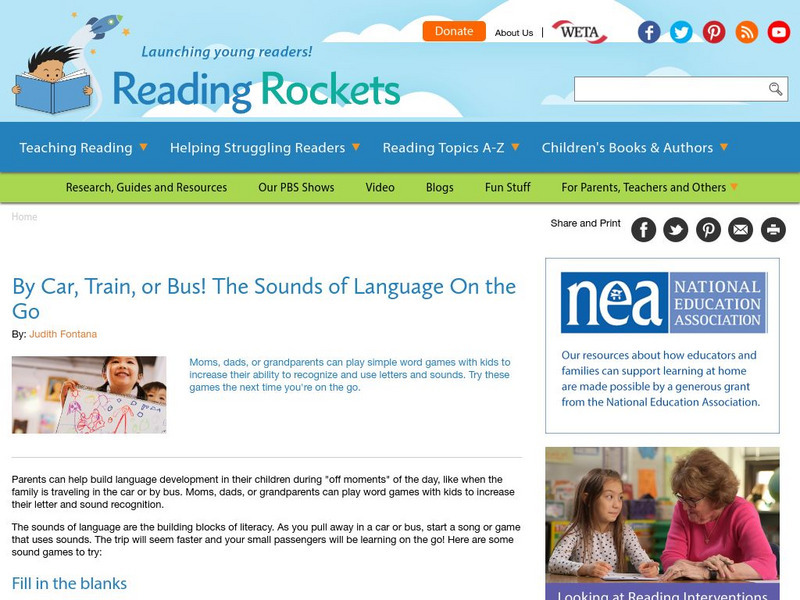Hi, what do you want to do?
Other
Tesol: Helping Students Understand That Written and Spoken English Are Different
This in-depth article analyzes how teachers can effectively teach students that written language does not always correspond to spoken language. Sample lesson ideas are included. SL.9-10.6 Adapt to task/formal. CCSS.ELA-Literacy.CCRA.L.1,...
Reading Rockets
Reading Rockets: By Car, Train, or Bus! The Sounds of Language on the Go
Come and check out this awesome pre-reading resource. This site offers examples of simple word games you can play with kids to increase their ability to recognize and use letters and sounds. Try these games the next time you're in the...
Other
Practical Ideas on Alternative Assessment for Esl
A treasure trove of ideas for assessing the progress of English as a second language students other than traditional testing. Examples of a variety of measures that focus on growth over time, emphasis on student's strengths, and...
AdLit
Ad lit.org: Some Obstacles to Vocabulary Development
A strong vocabulary, both written and spoken, requires more than a dictionary. In fact, it requires an educational commitment to overcoming four obstacles: the size of the task (the number of words students need to learn is exceedingly...
AdLit
Ad lit.org: Teach Vocabulary by Building Background Knowledge
Students need to develop an extensive vocabulary to read with fluency. In turn, fluency in reading leads to increased comprehension. Fluency also comes from the written language of the reader since the student writes words he or she...








